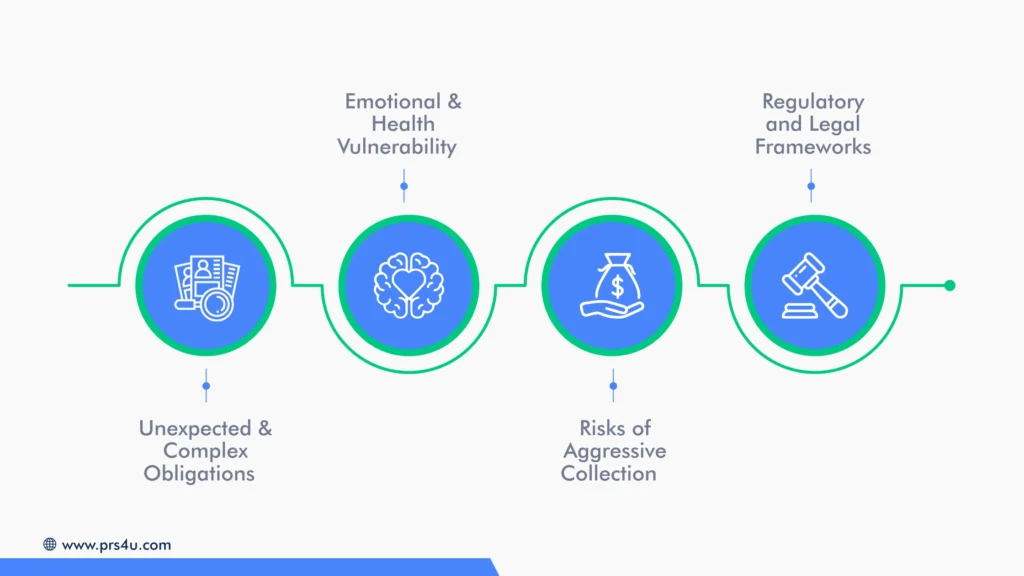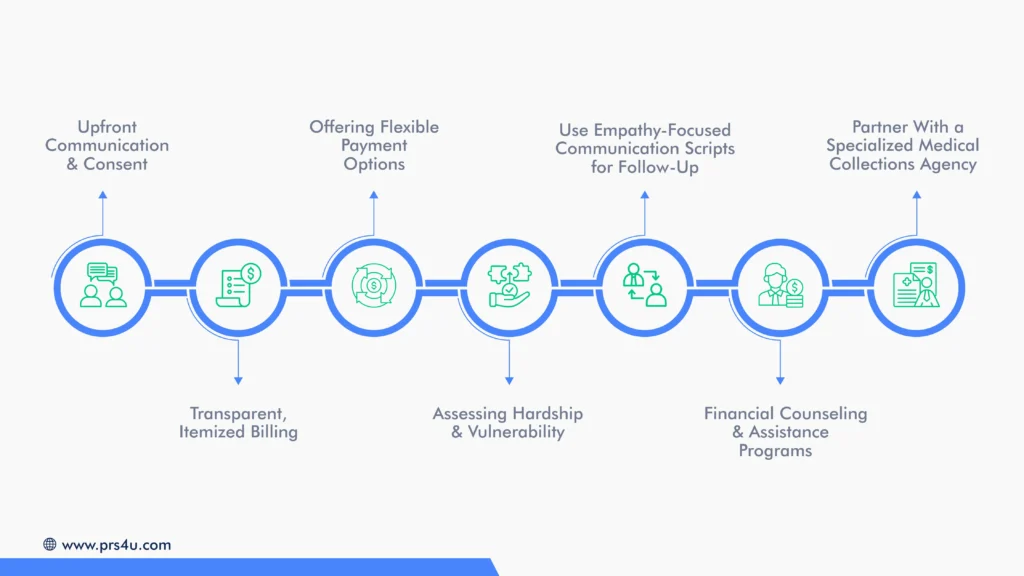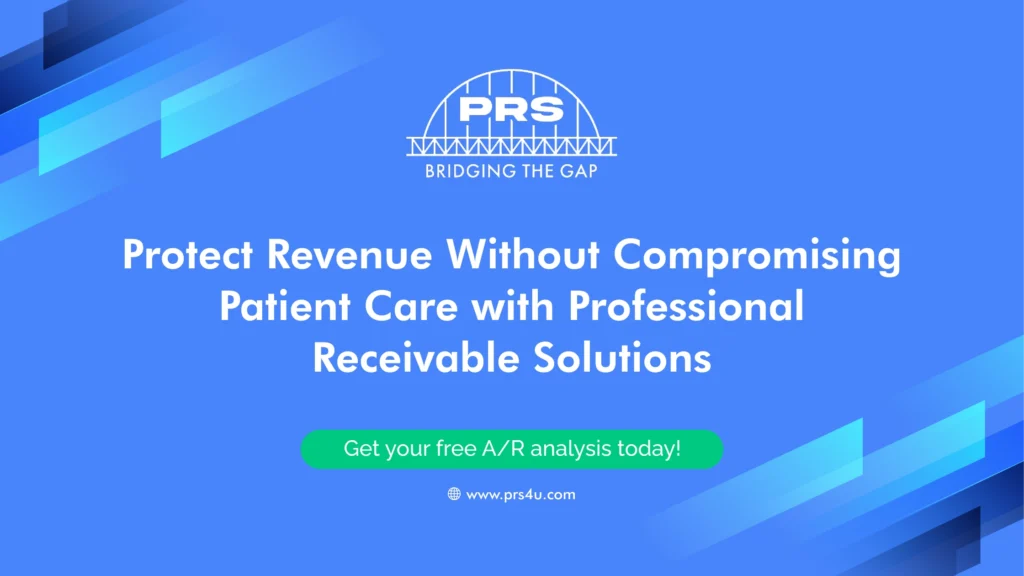Ethical Medical Debt Collection: Protecting Care and Revenue
Medical debt is unique in its emotional and financial stakes: patients often don’t expect to owe for essential care, yet the bills can mount quickly. In the U.S. alone, 14 million adults carry medical debt exceeding $1,000, a burden that can cause individuals to delay care, skip other bills, or even spiral into financial crisis.
For health providers, the challenge is clear: how do you recover outstanding balances without harming patient trust or deterring future care? The tension between financial recovery and humane treatment makes medical debt collection one of the more delicate areas in receivables management.
In this blog, we’ll discuss how to navigate that balancing act. You’ll learn what makes medical debt distinct, the ethical principles that should guide collection, best practices for implementing an empathetic strategy, and how a specialized partner can help you uphold both integrity and revenue goals.
Why Does Medical Debt Require Special Consideration?

Medical debt carries unique challenges tied directly to patient well-being and the healthcare system itself.
Unexpected & Complex Obligations
Unlike planned expenses such as credit card purchases or personal loans, medical bills often arise suddenly from emergencies, surgeries, or ongoing treatments. Patients rarely anticipate the cost, and insurance coverage can leave significant gaps.
This combination of unexpectedness and complexity means patients may struggle to understand or plan for their obligations.
Emotional & Health Vulnerability
Medical debt intersects with periods of stress, illness, and recovery. Patients facing overdue balances are often managing physical or emotional strain at the same time. Aggressive or insensitive collection tactics in this context can deepen anxiety, discourage people from seeking future care, and undermine trust in healthcare providers.
Risks of Aggressive Collection
Healthcare providers have a dual responsibility: financial stability and patient care. Overly harsh collection strategies can backfire by damaging relationships, driving patient abandonment, and creating reputational harm for the hospital, practice, or collection agency involved. In a field where trust is critical, reputation loss can ripple across communities.
Regulatory and Legal Frameworks
Medical debt is also governed by strict legal and ethical frameworks. Providers and agencies must comply with healthcare privacy rules such as HIPAA, consumer protection laws like the Fair Debt Collection Practices Act (FDCPA), and state-level regulations.
These frameworks exist to ensure patient data security, limit abusive practices, and balance the right to recover payments with the patient’s right to fair treatment.
Core Ethical Principles in Medical Debt Collection
Recovering overdue medical balances requires more than financial expertise. It demands a commitment to values that respect patients while ensuring providers remain sustainable. These ethical principles provide a framework for striking that balance.
- Compassion and Empathy: Approach patients with understanding, recognizing the stress of managing both health concerns and financial obligations.
- Transparency and Clarity: Ensure bills, payment terms, and collection steps are explained in plain language without hidden costs or jargon.
- Fairness and Flexibility: Offer reasonable payment plans or hardship options that reflect the patient’s financial circumstances.
- Respect for Privacy: Safeguard sensitive medical and financial information, sharing only what is necessary with authorized parties.
- Professional Accountability: Maintain oversight and internal standards to prevent overly aggressive tactics and to resolve disputes responsibly.
By anchoring medical debt collection to these principles, healthcare providers and agencies can protect patient trust, reduce conflicts, and sustain financial recovery in a way that upholds both care and compliance.
Best 7 Practices & Strategies for Ethical Medical Debt Collection

Putting ethical principles into action requires concrete steps that guide day-to-day collection efforts. Medical debt involves people who may already be facing significant stress. For that reason, healthcare providers and collection agencies need strategies that balance empathy with accountability.
1. Upfront Communication & Consent
Clear communication at the beginning of the patient journey sets the foundation for ethical medical debt collection. Patients often feel blindsided when they receive bills they didn’t anticipate, which can damage trust before any collection process even begins. By being transparent from the start, providers reduce confusion and show respect for patient autonomy.
This means clearly explaining expected costs, insurance coverage, and potential out-of-pocket responsibilities before or at the time of treatment whenever possible. It also involves outlining payment options and collection policies in plain, accessible language so patients know what to expect if balances remain unpaid.
Seeking explicit consent is equally important. When patients acknowledge and understand the financial aspects of their care, it creates a sense of fairness and shared responsibility. Instead of collections being seen as punitive, they are understood as part of a process that was explained upfront.
2. Transparent, Itemized Billing
One of the most common frustrations for patients is receiving bills that feel vague or confusing. Ethical medical debt collection begins with ensuring that every invoice is easy to understand and fully transparent. An itemized bill not only clarifies what services were provided but also builds trust by showing that charges are fair and accurate.
Common practices for transparent billing include:
- Provide detailed line items that clearly list each service, procedure, or supply.
- Explain insurance adjustments so patients understand how coverage was applied.
- Highlight patient responsibility by separating insured amounts from out-of-pocket balances.
- Avoid hidden charges or vague descriptions that could cause disputes later.
- Offer billing support with staff available to answer questions and walk patients through complex statements.
When patients know exactly what they are paying for, they are far more likely to cooperate with repayment and view the process as fair. This clarity reduces disputes, strengthens confidence in the provider, and supports a smoother path to financial recovery.
3. Offering Flexible Payment Options
Not every patient is able to pay their medical bill in full, and insisting on immediate payment can create unnecessary hardship while straining the provider–patient relationship. Ethical medical debt collection recognizes these realities and builds in flexibility that makes repayment achievable without overwhelming the patient.
Practical ways to provide flexibility include:
- Installment Plans: Allow patients to spread payments over time in smaller, manageable amounts.
- Sliding Scale Options: Adjust repayment terms based on income level or financial circumstances.
- Deferred Payment Arrangements: Provide grace periods for patients recovering from major procedures or financial setbacks.
- Interest-Free Plans: Avoid adding financial strain by offering repayment without additional costs.
- Periodic Reassessments: Review payment arrangements to adjust terms if the patient’s situation changes.
By offering flexible payment solutions, providers demonstrate fairness and compassion while still protecting their financial stability. Patients are far more likely to remain engaged, cooperative, and loyal when repayment feels possible rather than punitive.
4. Assessing Hardship & Vulnerability
Some patients face circumstances that make repayment especially difficult. Ethical medical debt collection recognizes that serious illness, job loss, or limited income can create genuine hardship. In these situations, the goal should be to balance financial recovery with compassion.
Providers and agencies can build fairness into their process by screening for financial vulnerability and adjusting their approach accordingly. This might include pausing collections while a patient is undergoing intensive treatment, offering hardship programs that reduce or restructure balances, or directing patients to available financial assistance resources.
By acknowledging vulnerability rather than ignoring it, healthcare organizations show that they value patient dignity as much as their own financial stability.
Addressing hardship thoughtfully helps patients manage overwhelming debt and fosters long-term trust in the provider. Patients who feel understood are more likely to stay engaged with their care, communicate openly about challenges, and work toward repayment solutions that are realistic and sustainable.
5. Use Empathy-Focused Communication Scripts for Follow-Up
Following up on medical debt requires sensitivity. Empathy-focused communication scripts help staff acknowledge patient stress while maintaining professionalism, increasing the likelihood of timely repayment. Begin interactions by recognizing the patient’s circumstances, using phrases like, “We understand managing medical expenses can be challenging” or “We’re here to work with you on a solution that fits your situation.”
Common practices include:
- Opening calls or emails with understanding
- Presenting flexible payment or hardship options proactively
- Avoiding threatening or punitive language
- Ensuring consistent tone across all communication channels
Using empathetic scripts fosters trust, reduces frustration, and encourages cooperation, allowing providers to recover balances while maintaining positive patient relationships.
6. Financial Counseling & Assistance Programs
Many patients struggle with medical bills due to complex coverage gaps, unexpected procedures, or personal financial challenges. Offering financial counseling and assistance programs helps patients navigate these hurdles while supporting timely repayment. By providing access to trained counselors, patients can understand their bills, explore payment options, and identify assistance programs for which they may qualify.
Effective approaches include:
- One-on-one sessions with financial counselors
- Guidance on charity care, grants, or state programs
- Structured repayment plans tailored to income and circumstances
- Transparent explanations of insurance coverage and patient responsibility
Integrating these programs not only reduces patient stress but also improves collection outcomes, fostering loyalty and long-term engagement with your practice.
7. Partner With a Specialized Medical Collections Agency
Medical debt collection requires expertise that balances financial recovery with patient sensitivity. Hiring a specialized medical collections agency can provide the structure, experience, and compliance knowledge your organization needs.
These agencies understand healthcare regulations, patient privacy, and the nuances of empathetic communication.
Benefits include:
- Handling overdue accounts without straining your internal team
- Implementing multi-stage collection strategies tailored to healthcare settings
- Ensuring compliance with HIPAA, FDCPA, and state-specific regulations
- Preserving patient relationships while recovering outstanding balances
By utilizing a partner focused on ethical, healthcare-specific collections, providers can protect both revenue and reputation, allowing staff to focus on delivering quality care rather than chasing payments.
Protect Revenue Without Compromising Patient Care with Professional Receivable Solutions
Professional Receivable Solutions (PRS) combines ethical practices with proven strategies to help healthcare providers recover unpaid medical balances efficiently and compassionately. Here’s how PRS supports your practice:
- Stage 1 Collections: Recover more at a fraction of the cost with courteous, compliant outreach that maximizes early payments.
- Stage 2 Collections: Skilled professionals handle follow-up calls to patients, improving recovery rates while minimizing stress on your staff.
- Stage 3 Collections: For accounts requiring escalation, PRS coordinates with legal experts to pursue collections while adhering to healthcare regulations.
- Transparent Reporting: Stay informed with clear, real-time updates through secure online access.
- Customized Payment Solutions: Tailored repayment plans that respect patient circumstances while protecting your revenue.
Take control of your accounts receivable today.
Get your free A/R analysis today and discover a better way to recover what’s owed, without compromising patient care or your time.

